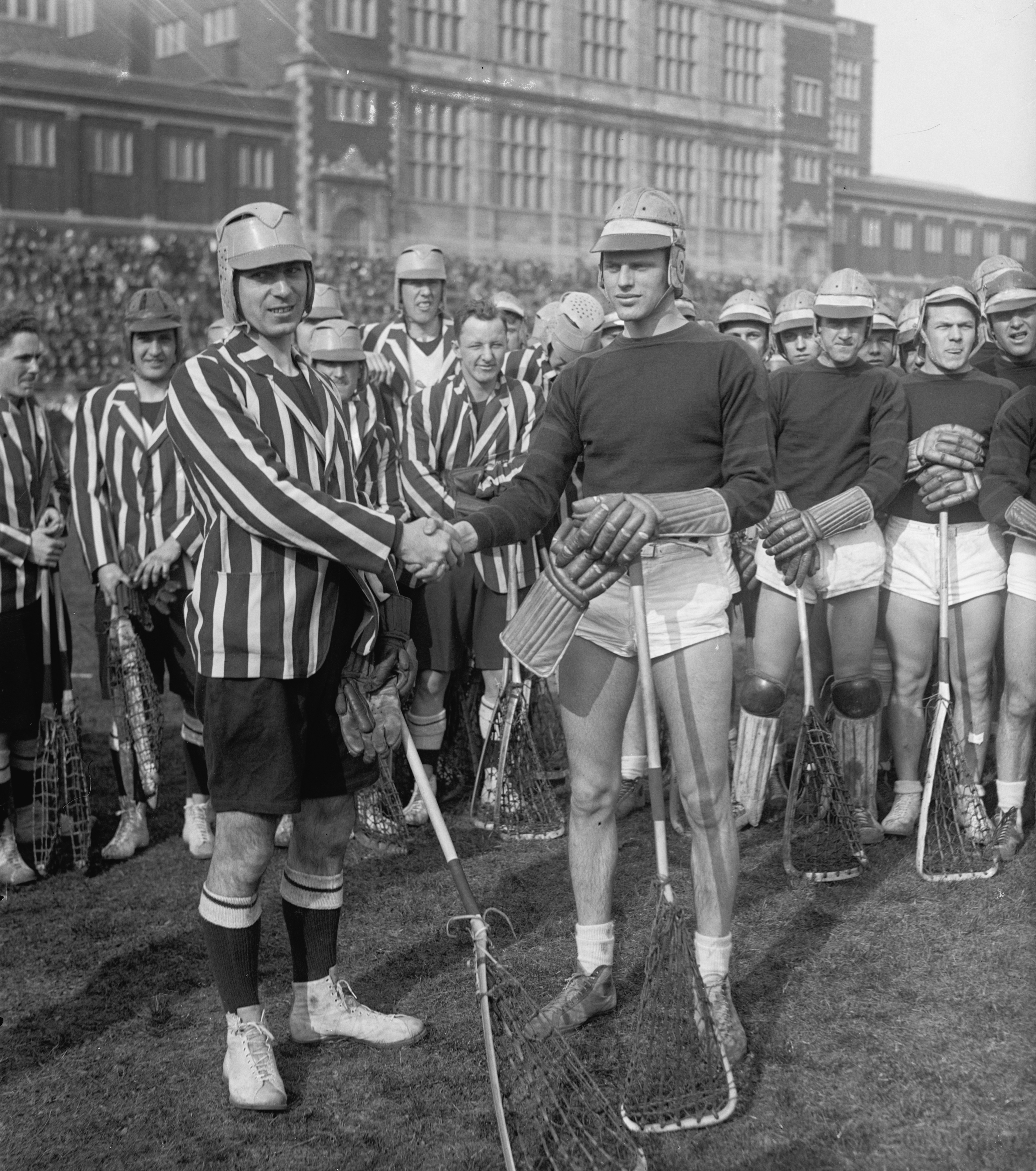The Role of Sports Diplomacy: Bridging Geopolitical Divides Today
In a world often divided by borders and political tensions, the realm of sports has emerged as an unexpected catalyst for peace. Athletic events, from the Olympics to World Cups, have a profound ability to unite individuals across disparate nations, showcasing how competition can transcend geopolitical divides. How exactly does sports diplomacy operate? What can we learn from past events to foster a brighter future? This exploration dives deep into sports diplomacy, uncovering its historical significance, current implications, and future potentials for global harmony.
Understanding Sports Diplomacy

At its core, sports diplomacy utilizes athletic engagements—whether through exhibitions, competitions, or partnerships—as avenues for fostering dialogue and reducing hostilities between nations. This concept may seem abstract, but the historical landscape is dotted with compelling instances where sports were at the forefront of peace initiatives.
One example is the famed "Ping Pong Diplomacy" of the early 1970s. When American table tennis players were invited to China, it not only marked a thaw in US-China relations but also laid the groundwork for President Nixon's visit—an unforeseen bridging of ideologies facilitated by a simple game. Sports can humanize rival nations, allowing people to engage in friendly competition while softening the harshness often seen in political arenas.
Historical Instances of Sports as Diplomacy

The 1980 and 1984 Olympics Boycotts

The Cold War era witnessed a contrasting use of sports for diplomatic purposes. In 1980, several nations boycotted the Moscow Olympics in protest against the Soviet invasion of Afghanistan. This reaction exemplified how political disagreements could seep into sports, changing the narrative from celebration to commentary on global issues. Conversely, the 1984 Los Angeles Olympics welcomed the Soviet Union and its allies to the games after the boycott, illustrating how one event could shape diplomatic relations.
These instances showcase the fragile nature of global politics; how an athletic event can simultaneously embody resentment and reconciliation, reflecting the feelings of the time. Yet, they also remind us of the influence sports can have on international relations.
The 1995 Rugby World Cup in South Africa

One of the most powerful examples of sports diplomacy emerged from South Africa during the 1995 Rugby World Cup. After decades of apartheid, Nelson Mandela utilized this event to unify a fractured nation. By donning the Springbok jersey—a symbol long associated with the apartheid regime—Mandela sent a stark message of reconciliation. This act transcended sport, signifying a shift towards collective healing and unity.
Such moments illustrate that sports can serve as more than mere entertainment; they encapsulate national identities and can decidedly influence cultural narratives. The event’s impact extended beyond the pitch, fostering a greater sense of national pride among South Africans and recognition globally of the country’s transition towards democracy.
Global Sporting Events and Their Impact on Diplomacy

Modern events, such as the FIFA World Cup or the Olympic Games, hold immense potential to act as platforms for diplomacy. These tournaments draw participants and audiences from around the globe, providing networking opportunities that can lead to fruitful discussions beyond the competition—whether it be diplomatic talks, cultural exchanges, or economic partnerships.
Take the FIFA World Cup, for example, which brings together nations that might otherwise be at odds. The tournament serves as a gentle reminder that, in the face of competition, shared passions can lead to collaboration. Furthermore, these events can spark interest in issues beyond sports, nurturing a greater understanding of different cultures and perspectives.
Current Geopolitical Climate and Sports

As of 2025, the geopolitical landscape remains complex, colored by tensions from climate change, global pandemics, and technological advancements. Amid these challenges, sports diplomacy can serve as a refuge. However, the reality is that it must navigate a fine line between politics and athletics.
The Impact of Technology on Sports Diplomacy

The advent of technology has transformed the way nations engage in sports, amplifying their reach while allowing diverse voices to be heard. Enhanced digital platforms and social media allow for real-time engagement, facilitating international conversations during major events. This connectivity enables fans to connect with athletes worldwide, breaking down divisive barriers and fostering a culture of mutual respect and understanding.
For a fascinating perspective on how technology intersects with sports, read our article on the impact of digital realities. Moreover, with the rise of eSports, nations are now engaging in competitive digital arenas, offering new avenues for diplomatic ties, especially among younger populations who might not relate directly to traditional sports diplomacy.
The Role of Athletes as Diplomats

Athletes today are increasingly viewed not only as competitors but also as ambassadors for their nations. With a platform that garners worldwide attention, sports figures wield substantial influence, often stepping into roles that promote peace, justice, and humanitarian efforts.
Consider figures like Muhammad Ali, who used his fame to advocate for civil rights and peace. In the modern world, athletes still do this, hardly shying away from addressing political issues. The influence of star athletes, especially in the wake of social and political movements, demonstrates a palpable shift in how sports and diplomacy coexist today.
The Future of Sports Diplomacy

As we navigate 2025, the potential for sports to foster international relationships is vast. Yet, this potential requires a careful approach, balancing commercial interests, national pride, and the overarching goal of unity.
Educational and Developmental Programs

Sports diplomacy can extend beyond high-profile events through educational initiatives and community-based programs. Creating opportunities for youth across countries to participate in sports can cultivate a mindset of collaboration and peace from a young age. Collaborative training camps, international tournaments, and cultural exchanges can sow the seeds of global understanding, serving as constructive tools for future generations.
To deepen this understanding, consider exploring our insights into local sports leagues and their influence on community-building, where the ethos of sports extends well beyond competitive games.
Challenge of Globalization

As globalization continues to reshape our world, it brings both opportunities and challenges for sports diplomacy. On one hand, it facilitates unprecedented cooperation; on the other, it can exacerbate existing divides. How nations navigate these challenges will impact future sports diplomacy, necessitating a commitment to inclusivity, fairness, and the shared joy of sports.
Innovations in Communication
Finally, as communication technologies evolve, so too will the landscape of sports diplomacy. With greater capability for instant interaction, nations could leverage sports diplomacy in real-time, facilitating dialogue and partnerships in ways previously unattainable. AI, data analytics, and social media may play crucial roles in shaping the narrative around sports on global platforms, creating opportunities for dialogue beyond mere competition.
Final Thoughts
The intersection of sports and diplomacy is a rich tapestry filled with stories of unity, conflict, and the human spirit. From their historical roots in peacebuilding efforts to their role in contemporary geopolitical discussions, sports possess an unparalleled power to bridge divides. As we advance into a new era influenced by technology, culture, and shifting political landscapes, the importance of athletic engagements in fostering global harmony cannot be overstated. Let us harness this potential, using sports not just as a medium for competition but more significantly, as a pathway toward lasting peace.



